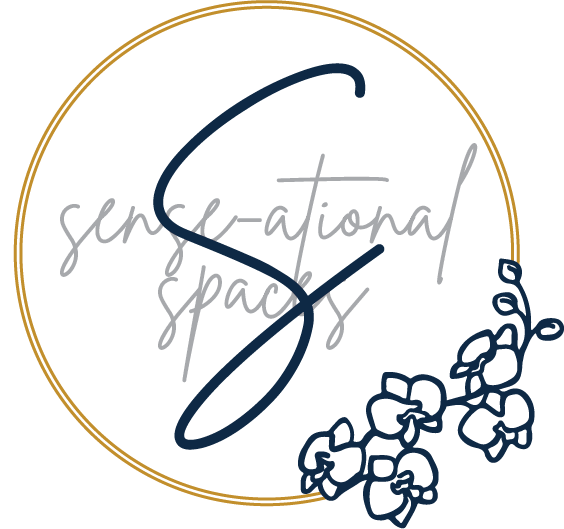Occupational Balance and You!
Occupational balance refers to taking time for all aspects of life, including work, relationships, and rest. There is no “prescription” for what makes a good occupational balance; everyone’s balance will look a little different! That said, occupational balance is all about what makes you feel like the best version of yourself. Having a positive occupational balance is related to decreased stress and improved mental health (Yu et al., 2018). Unfortunately, parents of children with disabilities often tend to be less satisfied with their occupational balance than their peers with typically developing children (Nithis Dhas et al., 2023). To help you feel like the best version of yourself, here are some ideas on how to improve your occupational balance!
Joining a support group has many benefits! Joining has been shown to increase feelings of belonging, foster friendships, and improve relationships with children (Solomon et al., 2001). As an added bonus, many support groups can be utilized as a scheduled time to focus on you and your mental health! Check out the following links for more information on support groups in Minnesota - where we are based out of- as well as across the country:
Taking some “me time” can make parents feel more resilient, improve coping abilities, increase self-efficacy, and decrease distress (Whiting et al., 2019). It is important to take some time for yourself and engage in activities that bring you joy. This could be anything from taking a relaxing bath or painting your nails to going for a run or pursuing any other hobby you love. Make a goal to spend 30 minutes each day focused on you and what you want to do. It may be helpful to schedule a time in the day that is easiest. Could you read your book for 30 minutes after your child goes to bed? Or do you have time to sit and enjoy your coffee after dropping your child off at school? While it can be hard to find the time, the benefits are worthwhile!
With busy schedules, it can be hard to find time to unwind and connect to nature. However, did you know that spending time in nature has been shown to improve both physical and mental health (Harvard School of Public Health, 2022)? It’s true! Our biophilia, or innate human desire to connect with nature, is why being outside makes us feel better (Harvard School of Public Health, 2022). During the warm months, try to move indoor activities outdoors for easy benefits. For example, calling doctors and scheduling appointments is not fun. However, calling doctors and scheduling appointments while sitting outside is much more enjoyable!
Last, but certainly not least, use your support system(s); friends, family, loved ones, and your healthcare team are here to support you! Respite care, referring to temporary relief for care providers through assistance with their everyday responsibilities, has many benefits. Short respite breaks have been shown to reduce the psychological distress of parents of children with disabilities; even better, these effects lasted more than 6 months (Tétreault et al., 2012)! Respite care and “me time” can go hand-in-hand. Asking a trusted loved one to care for your child for just 30 minutes can allow you to go for a walk, reconnect with your partner, or take a long shower! If you don’t have anyone locally who can support you, there may be a respite care center near you! Here in Minnesota we have a few scattered throughout the state such as the organizations below:
Let us know your favorite way to take care of yourself!
If you have any questions, concerns, or would like additional information, please reach out. We are here to support you!
References
Harvard School of Public Health. (2022, June 24). Boost your mental health by
spending time outside. Harvard University. https://www.hsph.harvard.edu/news/hsph-in-the-news/boost-your-mental-health-by-spending-time-outside/
Nithis Dhas, B., Carrasco, R., Reinoso, G. A., & Backman, C. (2023).
Occupational balance among parents of typically developing children and parents of children with disabilities. The American Journal of Occupational Therapy, 77(1), 1–8. https://doi.org/10.5014/ajot.2023.050076
Solomon, M., Pistrang, N., & Barker, C. (2001). The benefits of mutual support
groups for parents of children with disabilities. American Journal of Community Psychology, 29(1), 113–132. https://doi.org/10.1023/a:1005253514140
Tétreault, S., Blais-Michaud, S., Marier Deschênes, P., Beaupré, P., Gascon, H.,
Boucher, N., & Carrière, M. (2012). How to support families of children with disabilities? An exploratory study of social support services. Child & Family Social Work, 19(3), 272–281. https://doi.org/10.1111/j.1365-2206.2012.00898.x
Whiting M., Nash A. S., Kendall S., Roberts S. A. (2019) Enhancing resilience and
self-efficacy in the parents of children with disabilities and complex health needs. Primary Health Care Research & Development 20(33): 1–7. doi: 10.1017/S1463423619000112
Yu, Y., Manku, M., & Backman, C. L. (2018). Measuring occupational balance and
its relationship to perceived stress and health. Canadian Journal of Occupational Therapy, 85, 117–127. https://doi.org/ 10.1177/0008417417734355





